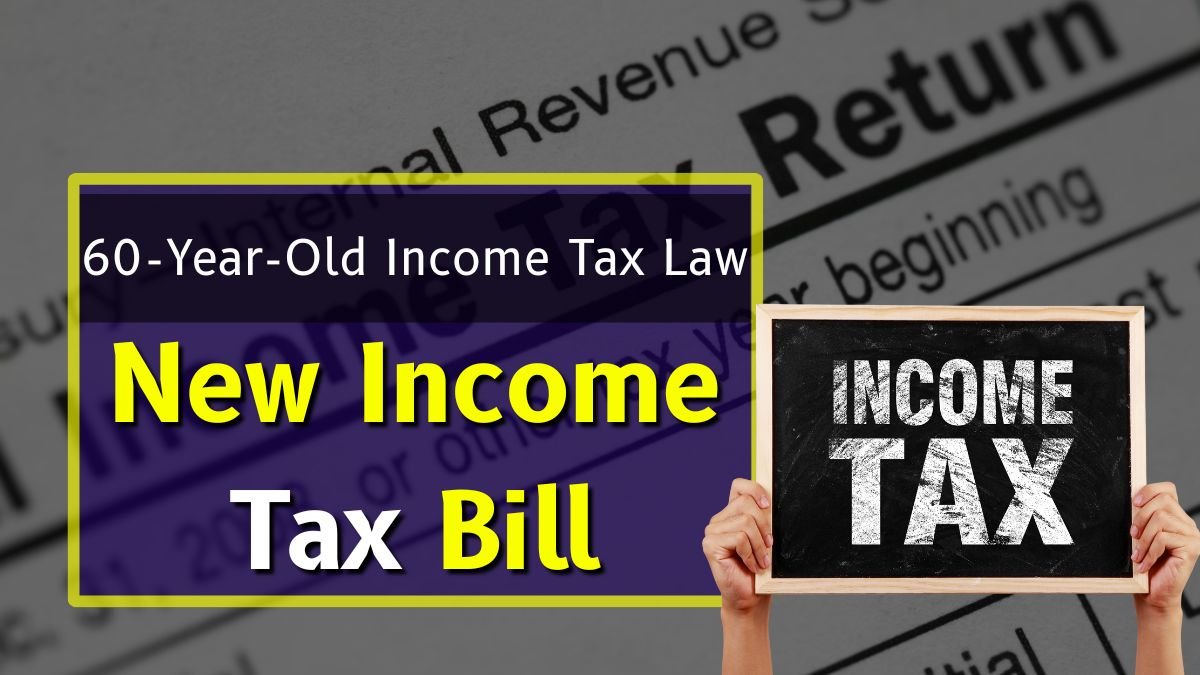A major transformation is on the horizon for India’s tax system. After 60 years, the existing Income Tax Act of 1961 is likely to be replaced with a brand new law — the Income Tax Bill 2025. The government will present a detailed report on this bill today in the Lok Sabha, marking a historic step toward simplifying the country’s tax structure.
What is the Income Tax Bill 2025?
The Income Tax Bill, 2025 was first introduced in the Budget session on February 13, 2025. Since then, it has been under detailed scrutiny. A 31-member Parliamentary Select Committee, led by Baijayant Panda, reviewed the bill and made 285 crucial suggestions. Their final report will be tabled in the Lok Sabha today.
Shorter, Simpler, and Smarter
One of the standout features of the new bill is how much simpler and shorter it is compared to the 1961 Act:
| Feature | Old Act (1961) | New Bill (2025) |
|---|---|---|
| Total Words | 5.12 lakh | 2.6 lakh |
| Sections | 819 | 536 |
| Chapters | 47 | 23 |
| Tables | 18 | 57 |
| Provisions Removed | — | 1,200 |
| Explanations Removed | — | 900 |
This means fewer complications, less jargon, and more clarity for the common taxpayer.
Big Relief: Assessment Year Concept Removed
One of the most taxpayer-friendly reforms is the removal of the confusing “assessment year” concept. Under the new system:
- The term “Tax Year” will replace both “Previous Year” and “Assessment Year.”
- For example, income earned in 2025 will be taxed in the same year, not in a later assessment year.
This move is expected to simplify returns and improve taxpayer understanding, especially for new filers and senior citizens.
Cleaner Provisions, Easier Compliance
According to the Income Tax Department’s FAQ:
- TDS/TCS rules are now placed in easy-to-read tables.
- Provisions for non-profit organizations have been reworded in simple language.
- These changes have reduced legal text by over 34,000 words.
This is a clear push toward a taxpayer-first approach — less paperwork, fewer loopholes, and fewer chances of getting lost in legalese.
Other Important Bills This Monsoon Session
Alongside the Income Tax Bill, eight more key bills are expected to be introduced in Parliament:
- Manipur GST (Amendment) Bill 2025
- Public Trust (Amendment) Bill 2025
- IIM (Amendment) Bill 2025
- Taxation Laws (Amendment) Bill 2025
- Geo-Heritage Sites Preservation Bill 2025
- Mines and Minerals (Regulation) Amendment Bill 2025
- National Sports Administration Bill 2025
- National Anti-Doping Amendment Bill 2025
Jan Vishwas Bill: A Boost for Business
The Jan Vishwas (Amendment of Provisions) Bill 2025 will also be introduced to promote ease of doing business and reduce regulatory hurdles for entrepreneurs. It’s a major step in supporting startups, MSMEs, and growing businesses.
Other Crucial Discussions
- Extension of President’s Rule in Manipur
- Representation of Scheduled Tribes in Goa’s Assembly (Bill 2024)
Both issues will require Parliamentary approval and are expected to be debated seriously during the session.
Final Thoughts: A New Chapter for India’s Taxpayers
If the Income Tax Bill 2025 is passed, it could mark the beginning of a new era in Indian taxation — one that’s easier to understand, fairer in execution, and more supportive of genuine taxpayers.
For every citizen who has struggled with complex forms, unexpected notices, or confusing jargon, this could be a refreshing change. While some details will become clearer as the bill moves forward, one thing is certain: the government is finally listening to the people.
